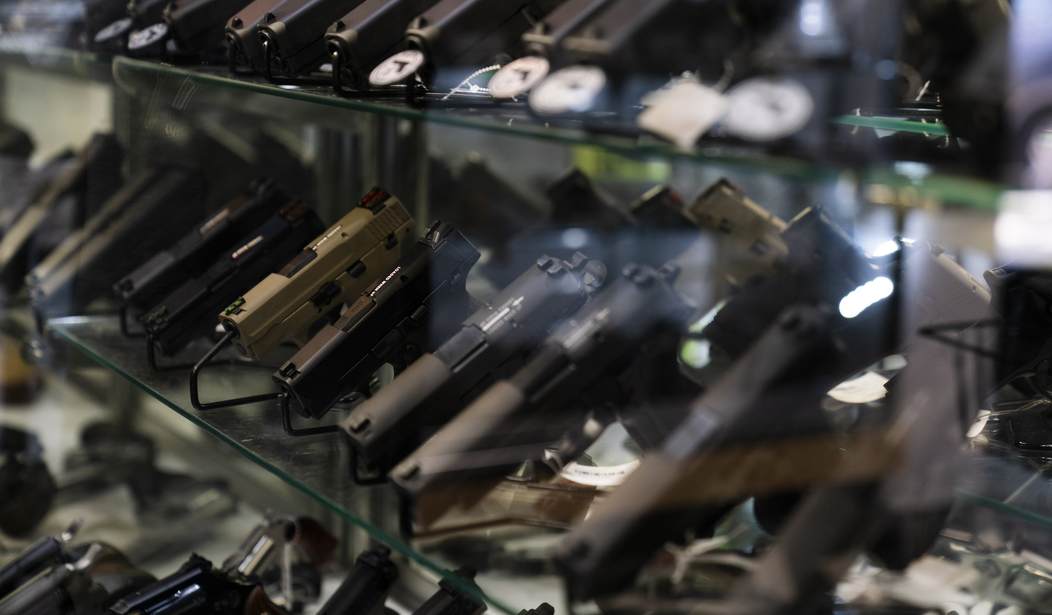There are a lot of things about the world that I don't like. Some of them, such as our gun laws, are things I'm working to try and change. Others are largely beyond my control. I can't stop child predators from existing, though I can offer to run the woodchipper. I can't stop flash floods from killing dozens of children at a summer camp. I can't do any of that.
I also can't stop the medical establishment from trying to push gun control along the way.
What I can do, though, is call them out when they try it.
The latest effort is a "commentary" from the Journal of the American Medical Association pushing mandatory storage.
An agonizing question haunts thousands of parents in the US who have lost a child to firearm suicide: Would they be alive today if we had locked the gun? Miller et al1 suggest an answer with a fresh look at some old data: the 1993 National Mortality Followback Survey (NMFS).2 Using an age-stratified case-control study design, the authors found a new statistical pattern in the data that harmonizes dissonant findings from 2 previous NMFS reports. They conclude that safe gun storage practices were associated with a significant reduction in the risk of firearm suicide in adolescents and young adults, aged 15 to 20 years (hereinafter adolescents), but not in adults. Presumably this is because adult gun owners who are intent on harming themselves have the means to unlock their own guns; their offspring typically do not. What is the message in such a finding? What are its implications for public policy, such as requiring safe gun storage by law?
...There is little or no disagreement among gun-violence researchers that merely having guns in the home substantially increases the relative risk that someone will die of a gunshot injury there. What has remained open to some debate is whether people with guns in the home can effectively eliminate the risk to themselves or others by removing a gun’s ammunition and locking the gun or stashing it in a safe.
Recent studies have reported evidence that when states have enacted child access prevention laws, they tend to have lower rates of gun suicide among children and adolescents compared with states that lack these laws.6 State comparative evidence becomes even more persuasive when paired with studies showing that the intervention works at the individual level. The NMFS is the only study, to my knowledge, in which researchers were able to incorporate household gun-storage data for persons who died of firearm and nonfirearm suicides. Two research teams, Dahlberg et al7 and Shenassa et al,8 analyzed the data. Surprisingly, they drew starkly conflicting conclusions, according to Miller et al.1
Of course, it should be noted that the reason we see little or no disagreement about so-called gun researchers is because they cherry-pick data, construct research parameters to omit inconvenient data, and refuse to publish anything that runs contrary to the preferred narrative. Further, anyone who strays outside of this framework gets labeled a heretic and is ostracized as not a real researcher.
Now, I don't think anyone would disagree that locking guns up where unapproved hands can't get to them is generally a good idea. No one wants their children finding a gun and accidentally hurting themselves or others, for example, but we'd also like to keep them from making a permanent decision regarding a temporary problem.
What these studies have never done and never tried to do is look at alternatives to dictating gun storage rules.
Would a strong educational campaign have as good or a better impact? What about tax credits for gun storage devices?
Those are measures that don't infringe on anyone's right to keep and bear arms--and yes, telling me how I store my guns is an infringement on how I keep them--and might well do as much or more.
Further, how many researchers have looked at how many young people have had a defensive gun use of any kind? How many had access to a gun and used it, and may well be alive today because of it?
Of course, that's not getting into the fact that the researchers counted legal adults who can actually own a handgun in their own right--they can't buy them from a licensed dealer, of course, but they can be gifted one or buy one in a face-to-face transfer in many states--so that skews the data all by itself.
Over and over again, the medical establishment keeps weighing in on guns. I have no issue with them offering advice about storing them, much like they advise people to buckle their seatbelts.
I have a problem with them trying to push for laws that infringe on our rights. Especially when they're using such shoddy research to advance it.
And let's be clear, I could write an entire book debunking the claims in this one "commentary," yet the JAMA thought this was sound. That ought to tell you plenty.








Join the conversation as a VIP Member